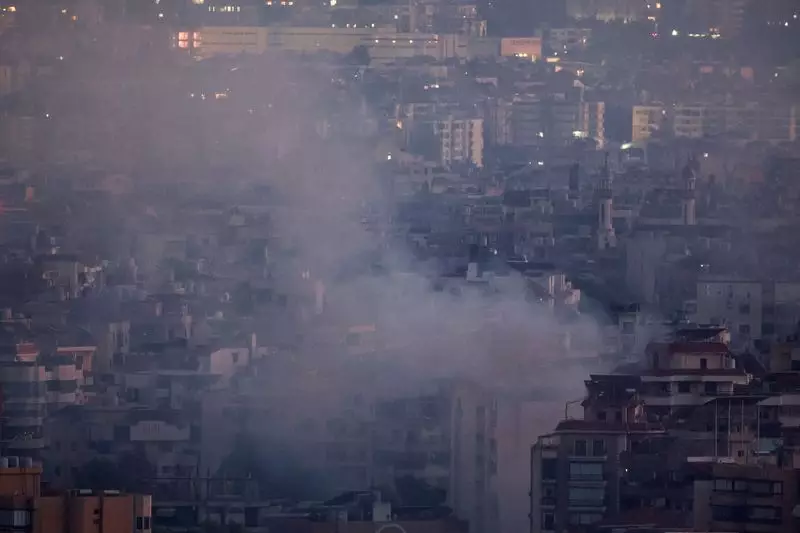The recent escalation of violence in Lebanon, particularly with the Israeli strikes in Beirut, underscores a dangerous prelude to broader regional instability in the Middle East. Such hostilities seem more than just localized skirmishes; they reflect the intricate web of alliances and hostilities that have characterized the region for decades. The killing of three leaders of the Popular Front for the Liberation of Palestine (PFLP) represents a significant development in these tensions, which warrant a deeper analysis of their implications both locally and internationally.
A New Phase of Conflict
The assassination of the PFLP leaders in an Israeli airstrike on Beirut’s Kola district marks a troubling turn in the ongoing conflict between Israel and Palestinian militant groups. This strike is notable not just for its immediate violence but for what it symbolizes in terms of Israel’s strategy against its perceived adversaries, particularly Iranian affiliates in the region. Historically, Lebanese cities were spared the brunt of airstrikes, with most attacks directed at southern Lebanon and Hezbollah operations. However, this latest development signals an alarming new phase of urban warfare, possibly indicating Israel’s willingness to expand its military reach into urban centers that have historically been viewed as safe havens for militants.
The Kola district airstrike has been described by witnesses as a targeted assault that struck the upper floors of an apartment building, an action that raises significant concerns about civilian safety and the moral implications of conducting military operations within densely populated urban areas. Reports from the scene indicate a growing number of casualties among civilians, which fuels animosity and resentment against Israel, ultimately complicating any pathways to peace.
Israeli aggression is not confined to Lebanon alone; it extends to Yemen, where airstrikes targeting the Iranian-backed Houthi militia have escalated as well. The pattern emerging is troubling: an increase in military action can draw the United States into a wider conflict, particularly as it has bolstered military presence in the region. This expansion of conflict raises numerous questions about the role of external powers, especially the United States, in perpetuating a volatile atmosphere.
Despite calls for diplomatic resolutions, actions speak louder than words. The U.S. administration’s approval of military reinforcements in response to the crisis presents a dual narrative: that of promoting peace while simultaneously preparing for potential military engagement. This contradiction reveals a complex geopolitical landscape where allies may inadvertently exacerbate conflicts rather than resolve them.
The human toll from these indiscriminate airstrikes is staggering. The Lebanese Health Ministry reported that over 1,000 individuals have died and more than 6,000 have been wounded in just the past two weeks, underlining the grave humanitarian crisis emerging as a result of this conflict. Such figures raise ethical questions not only about military strategies but also about the responsibilities of both the countries involved and the international community in ensuring humanitarian aid and protection for civilians.
As families are displaced and seek refuge in temporary shelters, including public areas like Zaitunay Bay, the grim realities of war are laid bare. The report of approximately one million displaced persons—one-fifth of Lebanon’s population—highlights the devastating impact of these hostilities. Such large-scale displacement is often a precursor to further humanitarian disasters, as access to essential services becomes increasingly strained.
The current trajectory of violence and retaliatory strikes in Lebanon and across the Middle East demands a thoughtful reconsideration from all parties involved. If history teaches us anything, it is that prolonged conflict seldom resolves grievances but rather intensifies them. An immediate ceasefire and a renewed commitment to diplomatic engagement are essential not only to alleviate the current humanitarian crisis but also to prevent the spillover of violence into wider regional conflicts.
Finding a sustainable solution requires the involvement of major international players, who must act decisively to facilitate dialogue while exercising restraint in military interventions. The reality on the ground is marked by tragedy, and the world must reckon with the responsibility to avert an even more profound tragedy unfolding in real-time.

